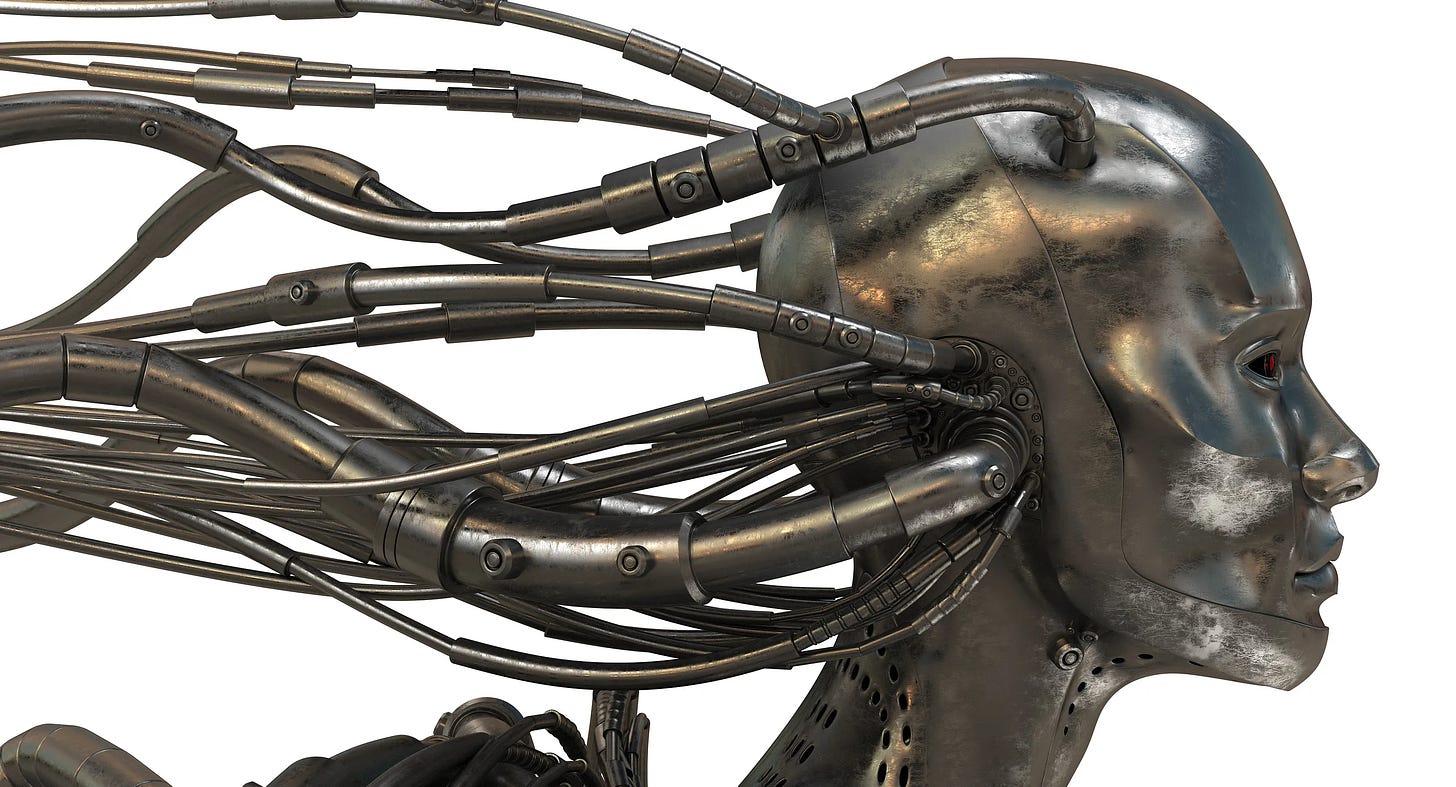AI Art: Blame the Exploiters, Not the Technology
“When falsehood can look so like the truth, who can assure themselves of certain happiness?”
Mary Shelley; ‘Frankenstein’
The current AI controversy, regarding its manufacture of art, bothers me on several levels.
First, it’s frustrating that people who are too lazy to learn the skills to write, paint, etc., are using these AI apps to do it for them—who then try to profit from their creations. Using the apps for private, personal projects is relatively harmless; I’ve used NightCafe to make character portraits for my Dungeons & Dragons campaign. Playing around with Midjourney to make mashups of films that never existed provides a laugh or two. I know of professional artists who use these apps to enhance their paintings, and there’s nothing wrong with that. Using ChatGPT to aid with editing/parsing text is fine, too. These are tools, after all, and should be regarded as such.
But when the creations of these tools flood an already-saturated market, the trouble starts—particularly for artists.
These apps draw from the work of human artists to create a project. Yet these human artists receive no payment or royalties for this; the process is little better than stealing. Some apps even have presets in the style of a particular artist, and the presets are not limited to deceased artists. This amounts to plagiarism, and it has already happened. One of the most prestigious science fiction magazines, Clarkesworld, recently closed to submissions due to a deluge of submitted stories—created by AI.
This isn’t art. These exploiters are using AI tools to game the system in an attempt to reap its rewards without doing the work. This makes it much harder for real writers—yes, I said it—to have their work considered by that publisher. This is only the beginning. These ‘novels’ will inundate Amazon KDP with titles made on the fly, for the pure purpose of profit rather than story. A human writer cannot compete with that potential output. People complain about gatekeeping in the publishing industry, but the rise of such apps will guarantee it becomes a reality, since only the work of established authors is likely to be considered. I shouldn’t have to point out how much more difficult this makes things for new writers. This industry is already tough to break into, let alone thrive in, and these exploiters just made it exponentially harder.
Second, it’s unfortunate that such excellent technology is being abused this way. Not that the abuse of technology is anything new, but there will be a backlash against it. Remember how the combination of uninformed, fearmongering people and greedy corporations ruined things for GMO foods? We had a scientific breakthrough that could have made lives easier for millions, but public opinion—egged on by baseless negativity—ended that. I fear the same will happen with AI. It’s a wonderful tool, and unscrupulous swindlers are already giving it a bad name.
Third, I wish we’d stop calling it ‘AI’. It’s artificial, but it’s not intelligent. These apps are little more than sophisticated compliers based on the prompts one gives them. Sure, each project may be unique, but it’s still the end result of data compiling. That isn’t art.
Art is the process of human expression and communication that can be passed down centuries after the creator is dead, and thus influence countless others. People still quote Shakespeare; we still hum Beethoven’s Fifth Symphony. Mary Wollstonecraft Shelley’s ‘Frankenstein’ still haunts us with the moral responsibility of what we create. And what we have here is massive irresponsibility on the part of these exploiters, and by extension, the software’s programmers. One can’t help how others use the tools one created—but they can update that tool to feature some form of digital watermark to aid in its detection. A public statement decrying this exploitation wouldn’t hurt, either, but I get the impression they’re more impressed by what their tool can do, rather than its effect on real people, creating real art. Any press is good press for that mindset.
Short of that, I’m not sure what can be done, other than a wholesale rejection of AI, and that would hurt us in the long term. The greatest challenges of the 21st century are still looming over us, and we will need all the tools at our disposal. But exploitative greed has always challenged our species, and this is but the latest form. I hope we can work past this, and continue rewarding those who create, rather than those who steal.
Image: ID 16511399 © Vladislav Ociacia | Dreamstime.com


